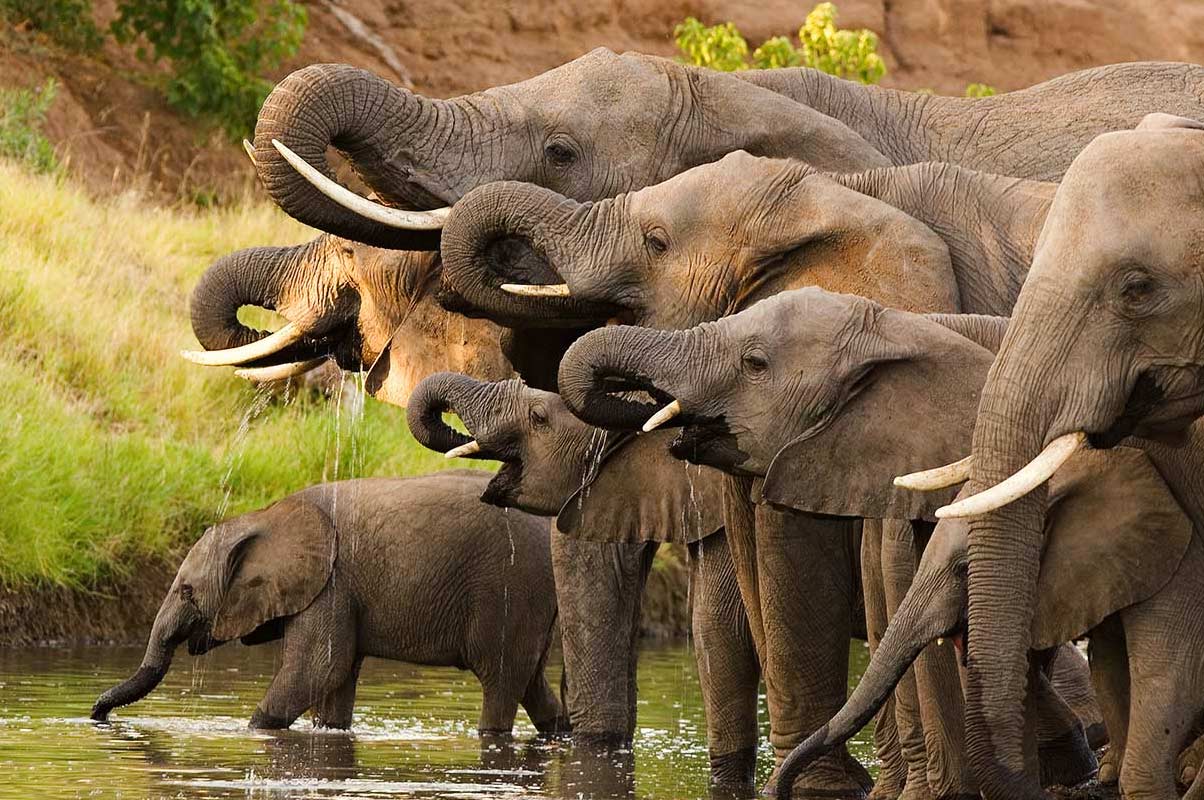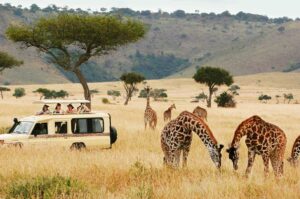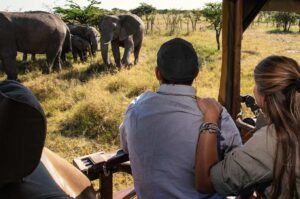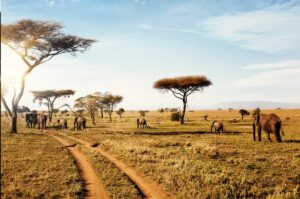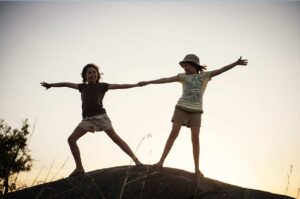How to travel safely to Tanzania on COVID
With coronavirus travel restrictions easing, Tanzania has opened its borders and is fully prepared to welcome tourists again.
Tanzania’s vast open spaces and small safari camps make it an ideal destination for those seeking out remote, crowd-free travel experiences. With careful planning and adherence to protocols, it is possible to enjoy a once-in-a-lifetime opportunity and experience Tanzania at its best. Why at its best? Because safaris will be cheaper and the most iconic destinations will be far less crowded than usual.
How to travel safely to Tanzania post-coronavirus
When you arrive in Tanzania you should know that while no mandatory quarantine period is currently in place, procedures such as temperature and health checks are now mandatory, social distancing is in effect and everyone is required to wear masks in designated places.
We believe these rules are a good thing as there is significant evidence from the World Health Organisation (WHO) that these precautions reduce the risk of infection:
- Maintaining social distancing.
- Washing your hands regularly and thoroughly.
- Wearing face masks.
Luckily, none of these safety measures will detract from the incredible experience of visiting Tanzania. Whether you are on safari in the Ngorongoro Conservation Area, experiencing the exhilaration of the annual Wildebeest Migration in the Serengeti National Park or relaxing on the white-sand beaches of Zanzibar – you are sure to have an idyllic experience.
Is it safe to travel to Tanzania yet?
The Tanzanian Ministry of Natural Resources and Tourism has left no stone unturned in their preparation to open the country’s borders safely post COVID-19 lockdown.
Tourism is an important industry in Tanzania. It contributes substantially to reducing poverty and safeguarding conservation. Thus, all the necessary measures are in place to make your trip to Tanzania as safe as possible. Did you know that a significant portion of the park fees you pay go towards anti-poaching and conservation programmes?
The government has put in place stringent policies to reduce the risk of Covid-19.
These measures seek to ensure that tourists who enter the country do not bring the virus into the country and do not contract coronavirus while in Tanzania. The policies are designed to ensure that Tanzanian service providers remain safe, whilst not negatively impacting on your holiday experience.
Our teams on the ground in Tanzania have assured us that they are adhering to the Covid-19 safety policies and view these as the ‘new normal’.
They have used the lockdown period to properly prepare their accommodation. All their teams have been carefully trained on the policies and procedures. Working through the procedures our partners have developed for the lodges, our team can see that many are even going beyond what is recommended by the Government to ensure the well-being of all visitors and staff.
What are Tanzania’s Covid-19 tourism safety guidelines?
In essence, what you need to know is that an enhanced screening policy is in place for all incoming tourists.
This includes a health questionnaire and temperature checks upon arrival. When in Tanzania you will be required to wash your hands frequently, stay at least 1-metre away from others, and wear face masks. Tourists are also asked to give information about their accommodation during their stay so that should the need arise you can be contacted. All tour operators have to follow the policies as part of their license to operate.
For more information read the detailed government document about health and safety for tourists and tourism providers.
Here’s a short summary of the health and safety document:
- Tourists need to apply for e-Visas before travelling.
- At the borders, airports, banks and national parks, every person has their temperature scanned with a thermal scanner and must wash or sanitise their hands before gaining entrance.
- Wearing a face mask is mandatory where indicated
- Social distancing rules apply.
- Medical clinics have been set up with facilities specifically for tourists. Mobile and tented health centres have been established in the national parks and along the main tourist routes for the potential quarantine, isolation and initial treatment of any traveller if required.
- Dedicated Covid-19 ambulances are stationed in tourist hotspot locations.
Must-do essentials, before you travel to Tanzania
Ready to travel to Tanzania? Hang on. Before you hit the road, it is crucial to take out travel insurance that covers you for Covid-19. Make sure you buy ‘cancel for any reason’ travel insurance, this will give you peace of mind if, for any reason, you need to postpone your trip.
We also recommend booking flexible flights so that you can adjust your travel dates should you need to.
Similarly, make sure that the lodges, camps and hotels you book offer refunds or allow you to change your travel dates if needs be. The same applies to the tour company you book with–ensure they will allow you to make changes to your travel plans if necessary.
Get advice and help planning your trip
We understand that Covid-19 is a concern for everyone, so we will provide you with policies for the lodges and camps should you be keen to travel. This way you can be sure that you are happy with the safety measures they have in place before you book.
Now that you know how things will work in Tanzania post-COVID-19 lockdown.
Kenya to Re-open its Borders too!
Kenya plans to re-open its borders to international visitors from 01 August 2020 so now you can once again travel to Tanzania and Kenya on one safari!
There’s always something exciting to experience on a safari in East Africa. If you can make the most of your East African safari by doing some pre-planning, you’ll have the adventure of your life!
Yes, a safari isn’t the most budget-friendly activity — but it is a once in a lifetime chance to see some of the most amazing wildlife and landscapes in the world. By following the tips and advice above you’ll be able to make the most out of your next safari in East African — all while saving some money too!

